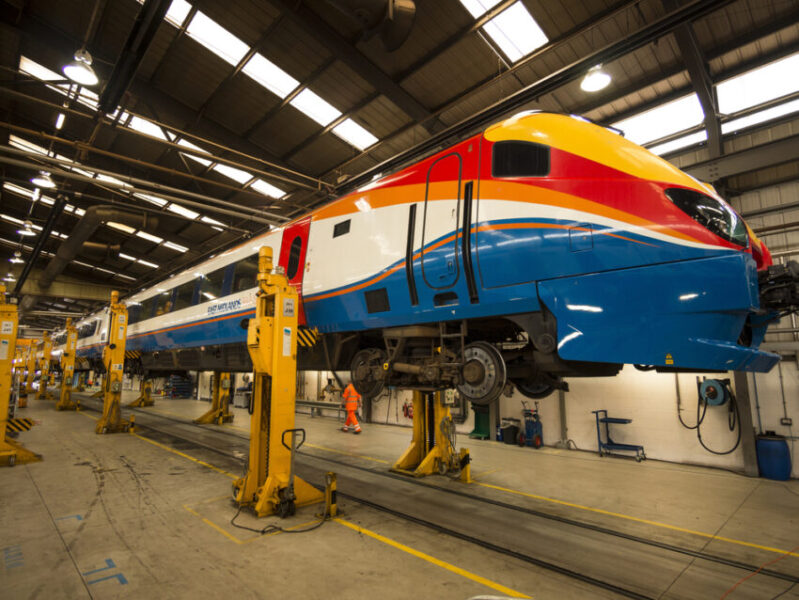
Derby is to be named the new headquarters of Britain’s rail network by ministers this week.
The delayed result of the competition to become the official home of Great British Railways is expected as early as Tuesday, with the Midlands city the frontrunner on a shortlist of six including Birmingham, Crewe, Doncaster, Newcastle and York.
The new strategic body’s HQ will house a limited number of direct top-level railway jobs, but will be a big symbolic boost to the winner. Contenders to host GBR have had to demonstrate their railway heritage and also how the move could contribute to the government’s levelling up agenda.
A public vote was held last summer – a brainchild of the then transport secretary, Grant Shapps – although it was decided that the public should only inform the outcome rather than decide it, after other ill-fated votes.
The result was closely guarded, with the fate of GBR appearing to hang in the balance, and two prime ministers and their transport secretaries departing office since the vote.
The idea of GBR was launched in 2021 after a long review into how the industry was run – launched in 2018 amid cost concerns, mismanagement of vital decisions and the collapse of franchising.
After some delay, the new transport secretary, Mark Harper, and Downing Street recently committed to pushing through rail reform, albeit with some amendments likely after lobbying by private train operators over the structure.
GBR will be a semi-independent body at the heart of a restructured railway, replacing Network Rail and parts of the Department for Transport (DfT) and acting as a “guiding mind” for track and trains.
The HQ decision will reaffirm Derby’s place at the heart of UK rail. A significant number of rail supply businesses are located there, with skilled manufacturing jobs that have often appeared under threat. Trains have been made in the city since 1839 and more than 10,000 people are still employed in rail, many at the UK plant of the train manufacturer Alstom, previously Bombardier.
The region has suffered a number of blows in government rail policy in recent years – not least the delayed electrification of the Midland mainline from London to Derby, and the scrapped plans for a nearby HS2 station at Toton, between Derby and Nottingham, after the eastern leg was put on indefinite hold.
However, the result will be a disappointment for the four northern cities on the shortlist in particular, and fuel increasing concern in the north over scaled-back promises to turn round rail services and poor infrastructure in the region.
The DfT declined to comment and said it would announce the winner in due course.